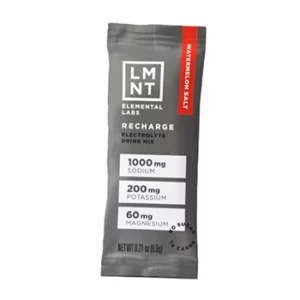Stress is widely recognized as one of the biggest contributors to the state of our mental and physical health. How we choose to manage it can impact our wellness on a deep level. Along with our fitness and nutrition goals, are we taking this seriously enough?
Doctors Elson Haas and Sondra Barrett are some of the top minds in the field of integrative medicine and in their new book, Ultimate Immunity, they dive deep into the stress-immunity connection. Dr. Elson Haas has been one of the most influential figures in our education on the interconnectedness of mind, body and spirit. His book Staying Healthy with the Seasons is one of our top wellness books of all time (get our list here!).
Below Dr. Haas is sharing the six key facts on immunity and stress he believes we should all be equipped with to better deal with stress. Stay tuned next week as we share Dr. Haas’ tips for stress reduction to keep immunity strong.
stress + perception: Stress can occur at any level of our being – physical, mental, emotional, biochemical and spiritual. Learning to respond to events and challenges rather than just reacting to them is a good place to start for better managing our emotions. Stress has many dimensions but is simply defined as the “perception or experience of not being able to handle what life brings us,” i.e. we believe that we don’t have the resources – the energy, money, mood, etc.- to cope with what’s presented. It’s an attitude of overwhelm.
the Immune system redefined: Our immune system really includes our entire body and healing system. It encompasses immune cells and molecules, our mind, gut, endocrine and nervous systems, and even ties into our personal relationships.
self + non-self: One of the immune system’s roles is to protect us from dangerous pathogens by being able to recognize “self” and “not-self.” When it’s working optimally, it protects and defends us from “non-self” germs invading our body. But when our immunity is too active or sensitive it responds to “non-self” too strongly. We could experience allergies, asthma and autoimmune conditions, or persistent inflammation and the many symptoms and diseases that result from inflammation.
adaptive immunity: Immunity is both inborn and adaptive. Inborn or “innate immunity” is what we are born with and is the rapid first response against any potential damage or foreign organism. Our white blood cells are the primary cellular players in the immune system. “Adaptive immunity” is what the body learns after encountering a pathogen. It consists of lymphocytes (T and B cells) and antibodies. The molecules that regulate our innate and adaptive immune responses are called cytokines, of which there are hundreds. While some immunity is inherited, there are other qualities and behaviors our bodies can actually learn.
gUt feelings: An important immune area is our gut, the intestinal tract, where the majority of immune activity occurs. What we put into our body, such as antibiotics and other medicines, greatly affects our gut health. The gut “biome” or “microbiome” is the constellation of all the bacteria and other microbes that make up our intestinal environment. Keeping our microbiome healthy is at the core of immune health.
dim Immunity: Stress affects both the immune cells and the cytokines and, in some situations, can actually dim the immune protection response. At other times, stress can make immune cells hyper-reactive, especially with inflammation.
The best road to health, immune and otherwise, is to maintain a more balanced perspective of life by managing stress at the onset rather than letting it linger. We’re going to talk about ways to do that next week. But in the meantime, just take a moment to acknowledge the stress-immunity connection and consider those small, intuitive measures that must be made to protect your personal health.















